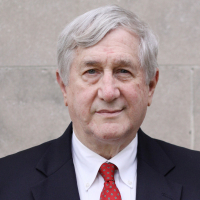Manokin White Collar Crime Lawyer, Maryland
Sponsored Law Firm
-
 x
x

Click For More Info:
-
James E. Crawford, Jr. & Associates, LLC
999 Corporate Blvd. Suite 100 Linthicum, MD 21090» view mapCriminal Defense, Divorce & Family Law Move Forward With Confidence
Our Firm's team of family, criminal, and business lawyers understand that each case presents unique challenges and must be met with equally unique approaches.
800-789-9220
Not enough matches for Manokin White Collar Crime lawyer.
Below are all Manokin Criminal lawyers.
Harold Stanley Link
✓ VERIFIEDCriminal, Divorce & Family Law, Motor Vehicle, Accident & Injury, Wills & Probate
Owner and managing attorney of the Law Office of Harold S. Link, which has been affording quality legal services at an affordable price for more than ... (more)
Robert Emerson Laird
Dispute Resolution, Juvenile Law, Criminal
Status: In Good Standing Licensed: 36 Years
Mark Andrew Tyler
Criminal, Administrative Law, Family Law, Juvenile Law
Status: In Good Standing Licensed: 21 Years
John Kevin Phoebus
Motor Vehicle, Federal Appellate Practice, Family Law, Criminal, Personal Injury
Status: In Good Standing Licensed: 27 Years
Wm A Lee Clarke
White Collar Crime, DUI-DWI, Criminal, Accident & Injury
Status: In Good Standing Licensed: 49 Years
Nancy Barnes Chernoff
Corporate, Family Law, Criminal, Commercial Real Estate
Status: In Good Standing Licensed: 31 Years
 James Crawford, Jr. Linthicum, MD
James Crawford, Jr. Linthicum, MD Practice AreasExpertise
Practice AreasExpertise

